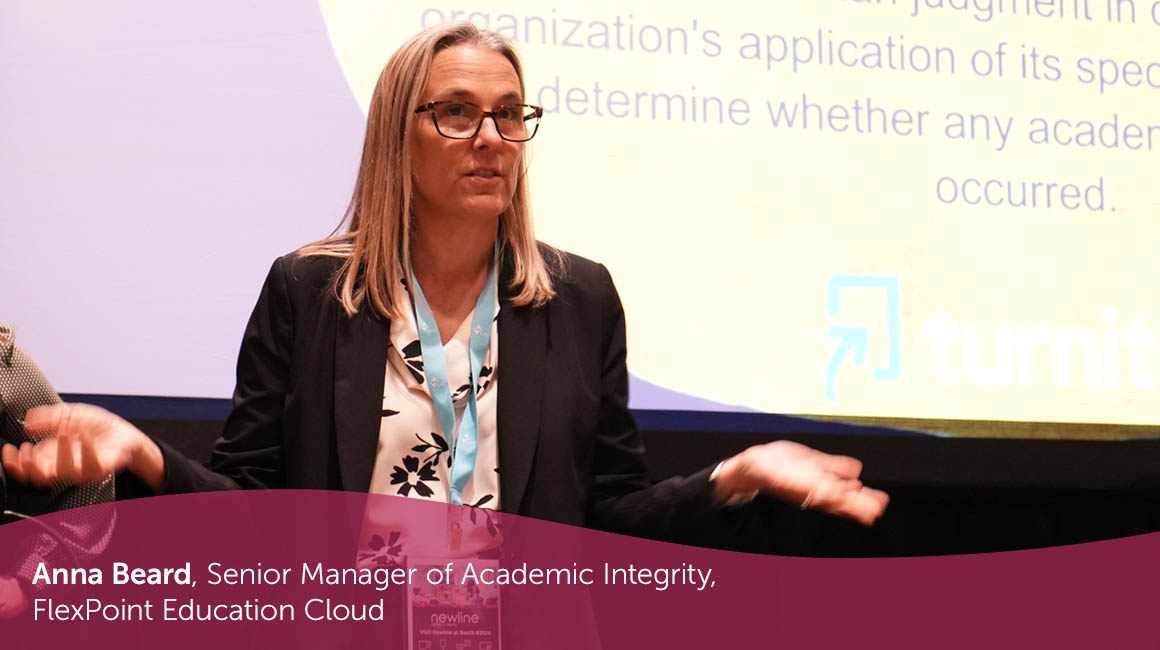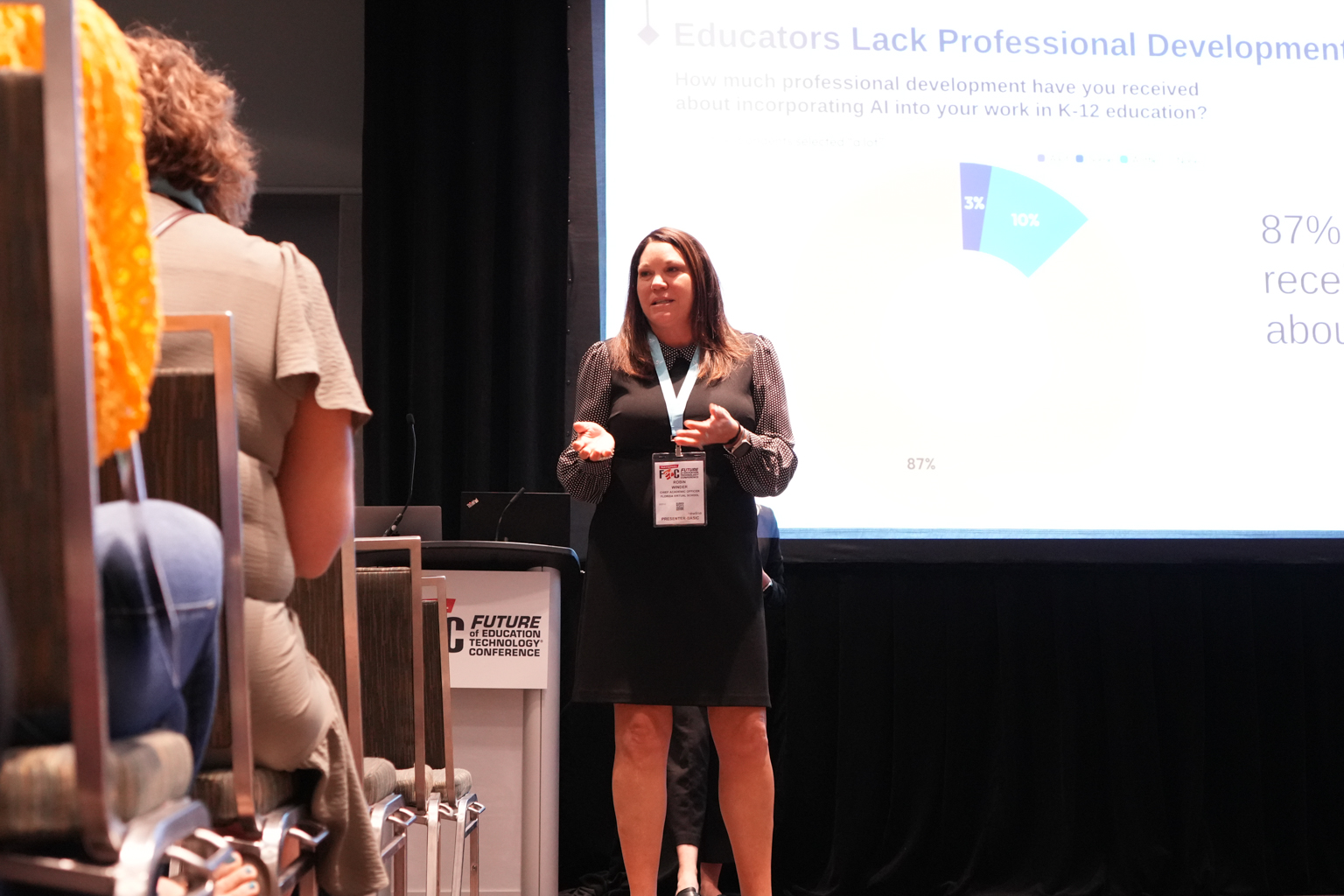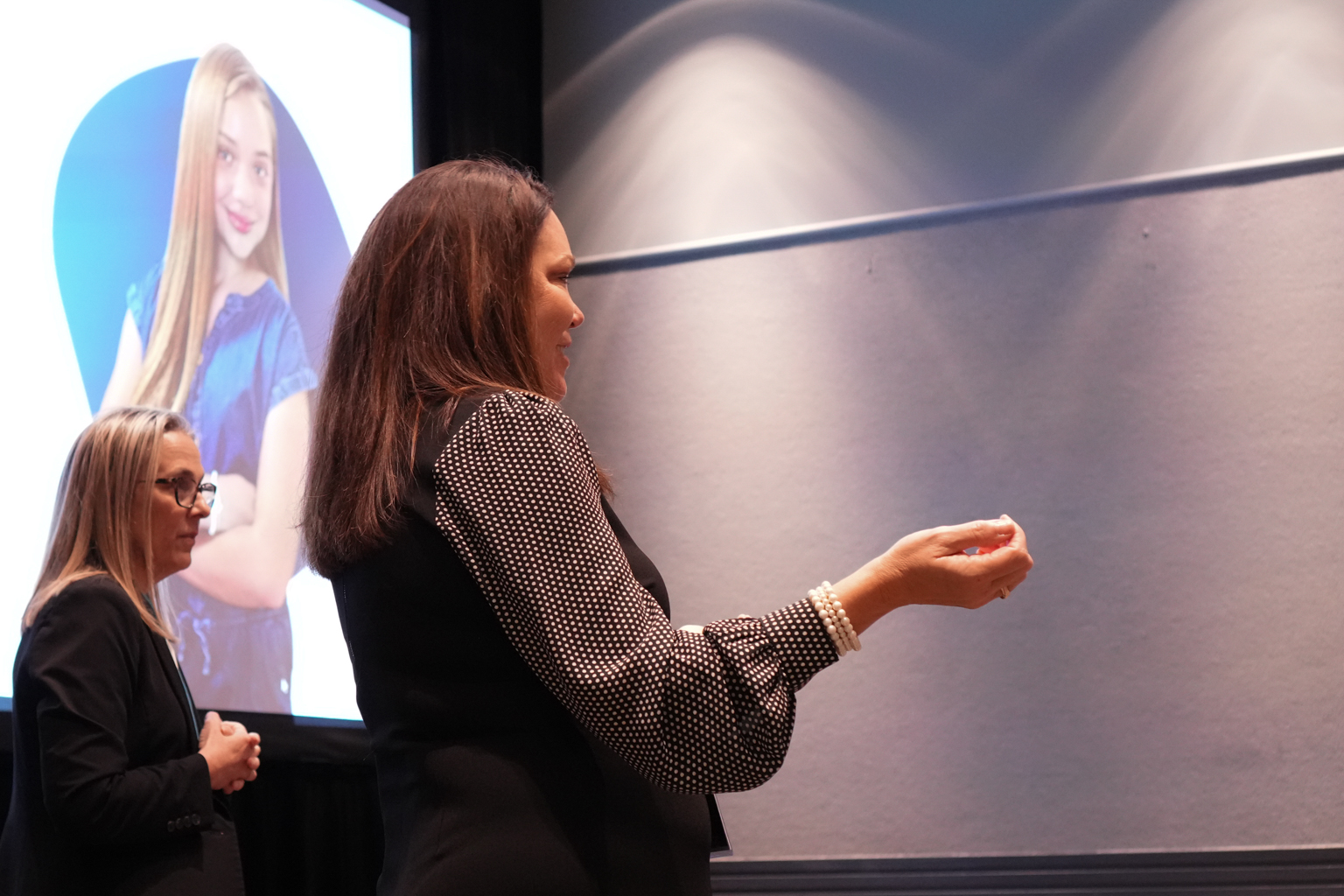How to Safeguard Academic Integrity as New Tech Emerges
How to Safeguard Academic Integrity as New Tech Emerges
February 13, 2024
By: Anna Beard, Senior Manager of Academic Integrity, FlexPoint Education Cloud

A few weeks ago, I had the honor of presenting at the Future of Education Technology Conference (FETC) alongside our Chief Academic Officer Robin Winder. Our topic focused on how schools and districts can ensure academic integrity as new technologies continue to emerge, like generative artificial intelligence (AI) applications such as ChatGPT, Bard, Claude, and more.
In case you weren’t able to attend the conference, I put together our top four takeaways from the session to ensure school and district leaders implement effective strategies to address the impact of emerging technologies on student learning.
1) Provide AI Training and Resources
A recent survey by Common Sense found that 58% of students ages 12 to 18 have used ChatGPT and 77% of parents are excited about the potential of artificial intelligence (AI) in education. Knowing there is excitement about these tools, how can you use them to your advantage? My first recommendation is to provide your teachers, support staff, students, and parents with training and resources related to new technology like AI.
Here is a list of resources I highly recommend:

- A toolkit by Teach AI that’s designed to help schools and districts create guidelines to help their teachers, students, and parents realize the potential benefits of incorporating AI in education while mitigating potential risks.
- A webinar by EducationWeek that includes academic integrity experts and school leaders. In the session, they discuss ways teachers can adjust instructional and assessment practices to use AI, how models like ChatGPT work, and resources to encourage open dialogue about AI and its impact on students.
- A 15-hour, self-paced course by the International Society for Technology in Education (ISTE) teaches educators about the various types of AI and how to make these technologies accessible to staff and students.
- We also have a new Artificial Intelligence Foundations Program of Study that creates accessible pathways to gaining the skills students need for college and career success. This progression of industry-focused classes allows high school students to gain a fundamental understanding of AI systems and their components, including perception, machine learning, human-AI interaction, societal impacts, and ethics. There are currently three digital courses available in our program, including Artificial Intelligence in the World, Applications of Artificial Intelligence, and Procedural Programming. Each course teaches students how to use AI responsibly, but also gives them insight into what a job that uses this new technology could look like.
2) Use Academic Integrity Tools
The great news is that there are tools you, your teachers, and your staff can use to detect if students use AI. One tool I recommend is Turnitin, which has been around for more than 20 years to promote academic integrity, streamline grading, deter plagiarism, and improve student outcomes. Recently, they launched an AI writing detection tool to help educators identify text that may have been prepared by an app like ChatGPT.
Ultimately, while it’s a benefit to use these tools, the teacher-student relationship is what drives academic integrity conversations, which I’ll get into next.
3) Know Your Students

While there are tools to help detect if new technology was used on a student’s assignment, they may not always be accurate. This is why human judgment is critical when determining if academic misconduct has occurred. If there is one takeaway I hope you walk away with, it’s to encourage your teachers to have more one-to-one conversations with their students so they can better understand their needs and build rapport.
The more teachers understand their students, including their passions, their academic strengths, and topics they struggle with, the easier it will be to determine if a student’s work is their own.
For example, we recently had a student who had a high artificial detection score on his work, so his teacher called him to talk about the score. A few minutes into the conversation he let his teacher know he used ChatGPT to understand the context of the art he was studying in the time period it was created. He went on to explain each piece of art in great detail, showing his understanding of the assignment. This example highlights that using an AI tool isn’t “bad.” Rather, his use of the tool strengthened his overall understanding and created a dialogue between him and his teacher on when and how to use AI.
4) Encourage Innovation
Let’s compare ChatGPT to another tool - the calculator. When the calculator was invented, educators were worried students would use it as a tool to cheat and skip over math concepts. Today, using a calculator saves time, builds student confidence, reduces errors, prepares students for their future, and increases engagement and understanding. While students need to learn how to complete math problems by hand, calculators are a valuable tool that deepens their understanding of more complex mathematical concepts.
With that in mind, encourage your teachers and staff to brainstorm ways they can leverage ChatGPT to benefit students. For example, while students could use ChatGPT to write an entire essay, there are ways to use the tool to deepen students’ understanding of grammar and essay structures. Have students create an AI-generated essay and have them deconstruct and evaluate it. Can they find the thesis statement, is there a hook, a central idea, evidence to back up the argument, etc.?
You could even use ChatGPT to develop games and quizzes based on the curriculum, which will allow students to engage with their learning in a new way. See if they can beat the AI knowing additional details or answering questions quicker.
I hope these four takeaways help you refine and enhance your academic integrity guidelines as emerging technology continues to change the way we teach and learn. If you’re interested in learning more about this topic or how to implement academic integrity guidelines in the online learning environment, please connect with our team.